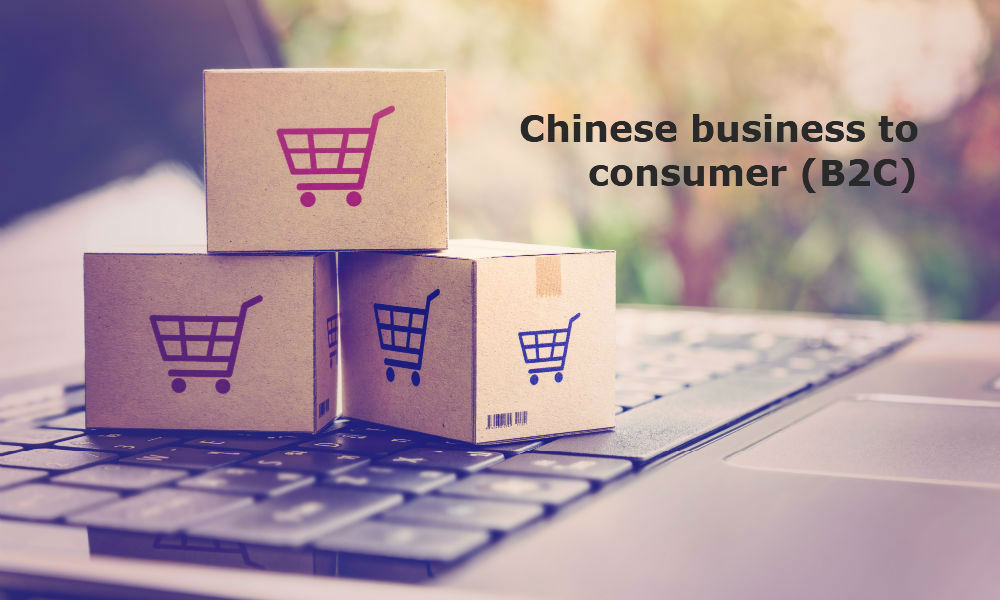Business to Consumer (B2C)

Business to consumer (B2C) check list
The internet has allowed the development of the Business to Consumer market in China.
Historical: before the internet
In the past most of the consumer products were purchased at local department store. The local stores selling consumer products had a very limited range and not part of a chain of stores.
Store Chains do exist in China but limited to large cities and shopping malls. Chain stores in the past, Chinese or oversea, have not always been welcome by local retails and consumers as local retails can be forced out of the market by the chain store. Local retail can create pressure and forced the chain store to close!
Given the lack of chain stores purchasing power and local competitor’s most Chinese made product where available outside China a cheaper price.
Overseas goods were sold in licensed overseas stores at greatly marked up prices.
Historical: the development B2C internet trading
The consumer market changed greatly with start of the local e-Mall department stores.
Before China had access to local websites the overseas e-Malls have always been available. Some of them where accessible from China, not because they were blocked, just they too slow or not accessible at all.
The other key issue was door to door delivery. The international delivery was costly and returning the goods was too exceptive.
One of the first local e-Malls was Amazon China, a local Chinese JV between China Company and international company Amazon.
This was followed by Taobao, created by Alibaba.
Taobao was a greater success;
- Market penetration – Alibaba had access to most the suppliers on the internet
- They resolve the end to end processing issues;
- Payment processing, Alipay
- Delivery systems
- Returns processing
- Social Media - Weibo
- They welcome Chinese made products at the low prices and accessible to all.
Later Tmall (Alibaba) was added for “up market” products and Tmall Global for overseas companies
360Buy, which now know JDBuy, is the major competitor to Alibaba e-Malls.
The advantage JDBuy has over Alibaba is there trading / commercial relationship to WeChat (Tencent). We except given this relationship JDBuy market share will grow greatly in the next few years (see BATs for more information).
Amazon China has a very low percentage of the Chinese market. They lost their market share to Taobao had a created end to end solution and there greater marketing reach.
A summary of the Chinese rules and regulations
- Sell on-line on a Chinese hosted internet site requires certification which only available to a Chinese business
- Any product sold on a Chinese internet site is subject to Chinese rules and regulations
- Products sold on internet sites outside China to a Chinese consumer are not subject to Chinese rules and regulations
- Products imported to China are subject to duty and taxes
- B2C purchased from foreign internet site are not subject to Chinese product certification rules (i.e. overseas cosmetic products sold directly to a consumer do not require Chinese product certification)
Chinese e-Mall market today
The good news today is all these e-Mall department stores help the suppliers to trade end to end; selling, payment, importing, shipping, taxes, etc.
These services come at higher cost then trading on Amazon or eBay outside China.
Many Chinese business feel that trading in the e-Malls is very expensive and that only the e-Malls make a high profit.
There are many problems in these e-Malls with counterfeit products been sold (or copy products as they are called in China).
The biggest trading day on-line in China is 11 November: Bachelor's Day.
Chinese overseas B2C e-Mall companies
Many overseas businesses look at their products been sold in at higher price thinking that are high margins to be made in China. The prices often include;
- International shipping costs
- The local shipping costs
- Custom fees
- Import taxes
- Sales taxes
i.e. what you see often on the internet in China is the net price for end consumer.
There is a very large consumer market in China.
First you must own your band in China. If you do own your brand registration in China you can take control of who can sell your products on-line from a Chinese website. This is something which general not available in the rest of the world!
After taking control your company’s band in China you start work reducing the distribution costs, e.g. shipping in bulk, creating a Chinese company and reducing transaction fees.
Transaction fee are often higher for overseas companies
- E-Mall membership fees
- Deposits
- Transaction fee
- Payment fees
If you have the business case, make sure you have, if your oversea company name, brand ownership in China and Chinese product certification (as required)
The good news you can start your business case today without travelling to China. Just start searching the Chinese e-Malls for your products / like products and see if there is a market for your business in China.
last modified: June 2019